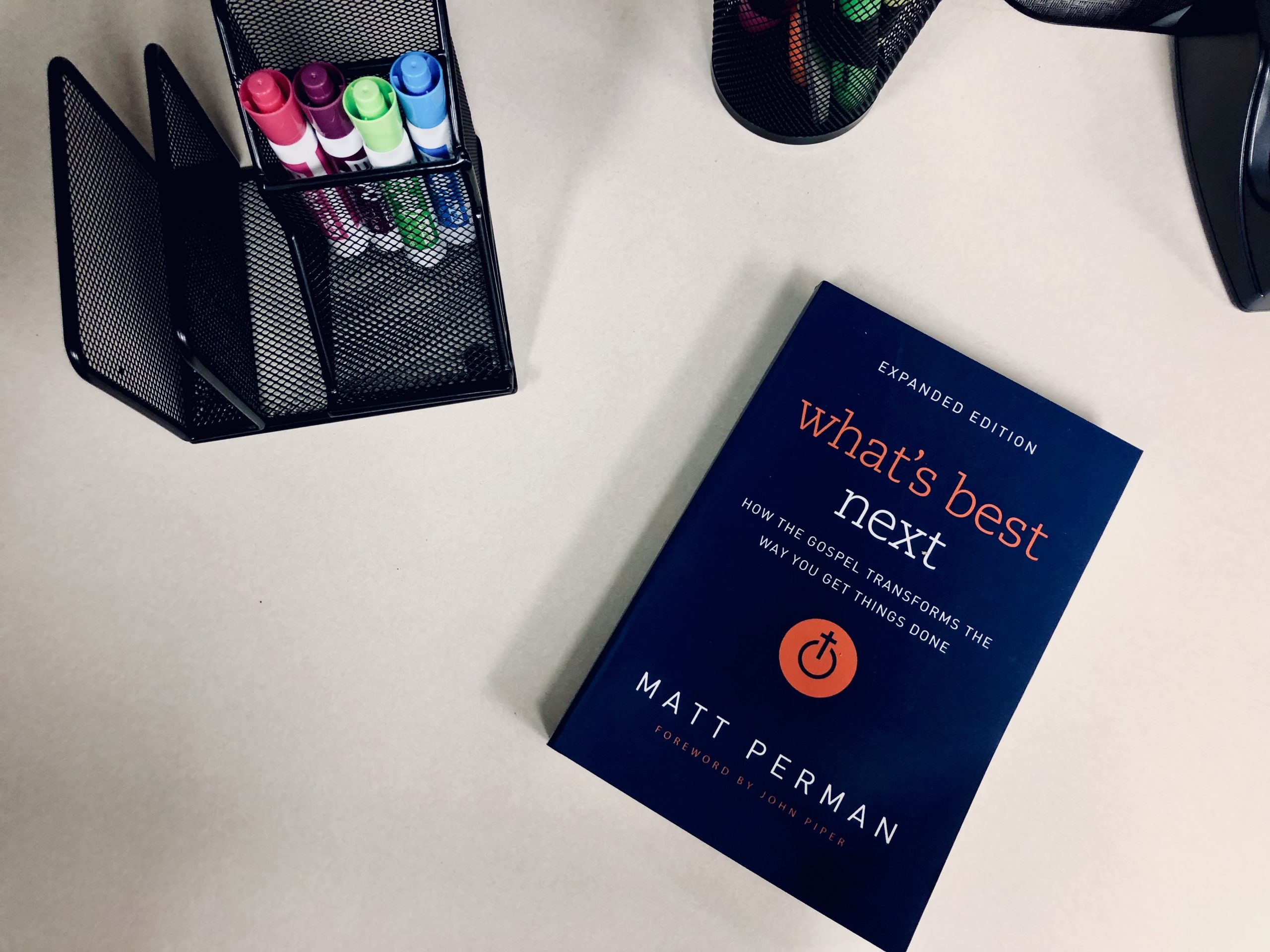What’s Best Next Part 2

In my last blog post, I introduced one of my favorite books, What’s Best Next by Matt Perman. I covered some of my favorite points from the first half of the book, which was largely philosophical. The second half of the book is mostly practical. It covers an acronym used to communicate the remaining content: D.A.R.E. These letters stand for: Define, Architect, Reduce, and Execute. You must first Define what you are trying to accomplish. From high level, life-long task and character accomplishments to the granular day-to-day, Perman walks the reader through defining what is most important. Then he moves on to Architect, and helps the reader create and think through how to structure days, weeks, months and years, in order to be most effective in the things you just defined. The Reduce section has to do with refining and cutting the fat in schedules. Finally Execute has excellent tips and thoughts for accomplishing all you have planned. Below are some of my favorite thoughts from the second half of the book.
- Sometimes, you are still in the process of finding what is important. In these moments, don’t do nothing, but do what is before you with excellence.
- “Read inspiring books and biographies, and watch inspiring movies.” My wife will be the first to tell you, I have never been a big history buff (she is though!). But as I have come to grips with my longing to lead a life that has meaning, I have slowly but surely become more interested in great people in history. Reading and hearing about the lives of great people, both past and present, renews my enthusiasm for leading a meaningful life myself.
- It is helpful to organize your roles by category. For example, I have the categories of: individual, family, church, social, and professional. I have many roles under each of those main headings. Each of these roles can be weighed against each other and inform the tasks that I need to focus on.
- “People work best from routines, not lists.” Did you know that during his presidency, George Washington did not have any lists? He had a consistent routine that accounted for everything he needed to do. I have learned that if I keep in my routines, my day goes smoother, and far fewer things fall through the cracks.
- “Researchers have found that whenever most systems – such as airports, freeways and other such things – exceed about 90 percent capacity, efficiency drops massively. Not just slightly, but massively. This is called the “ringing effect.” The reason is that as a system nears its capacity, the effect of relatively small disturbances is magnified exponentially.” Perman goes on to explain this point in the example of rush hour traffic. If the first car would go the speed limit, and the next, and so-on, shouldn’t traffic move smoothly? But it doesn’t because of this ringing effect. Our schedules are the same. Perman recommends filling our days to about 75% in order to actually get MORE work done than if we schedule at 90%.
I hope these small take-aways give you enough of a taste of the book to go read it for yourself, you won’t be sorry!

David Renberg
david@foundationks.com
7852369438


Leave a comment